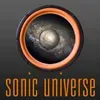Modern jazz Live Radio Stations
Radio Stations
Choose a Genre
The Evolution of Modern Jazz: A Genre that Continues to Push Boundaries
Modern jazz is a genre that embodies innovation and experimentation, offering listeners a thrilling exploration of new sounds, harmonies, and improvisational techniques. Emerging in the mid-20th century as a reaction to the social and cultural changes of the era, modern jazz quickly became a global phenomenon. With its focus on unconventional harmonies, experimental improvisation, and the incorporation of new instruments and genres, modern jazz radio stations bring this ever-evolving genre into the spotlight.
The Birth of Modern Jazz: A Response to Change
Modern jazz, sometimes referred to as post-bop or avant-garde jazz, began to take shape in the 1950s and 1960s, during a time of rapid cultural shifts in the United States. Influenced by the changes in society, technology, and art, jazz musicians sought to break away from the constraints of traditional jazz styles like swing and bebop. They embraced new ways of thinking about music, using more complex and unpredictable chord progressions, as well as introducing non-traditional instruments such as synthesizers and electronic effects.
This experimental approach was fueled by a desire to expand the boundaries of what jazz could be, incorporating elements from other genres like rock, funk, classical music, and even free jazz. The result was a unique blend of improvisation, groove, and adventurous harmonies that continues to shape modern jazz today.
The Characteristics of Modern Jazz
At its core, modern jazz is marked by a willingness to experiment with both form and sound. Gone are the strict rules of classical jazz, replaced with a freer approach that emphasizes spontaneous creation. One of the most defining characteristics of modern jazz is the use of unconventional harmonies and chord progressions, which create a sense of tension and release that challenges the listener’s expectations.
Improvisation remains a key feature, but the approach has evolved from the fast-paced, virtuosic solos of bebop to more expansive, textural explorations. Musicians often incorporate elements from other musical genres, such as rock and funk rhythms, or use electronic instruments and effects to alter the soundscape. The genre also embraces a more avant-garde, experimental attitude, where musicians are encouraged to push the limits of traditional jazz and explore new sound possibilities.
The Rise of Contemporary Artists
Modern jazz radio stations are a prime source for discovering the vast array of artists who are shaping this genre. From established jazz legends to emerging talent, modern jazz musicians continue to explore new sonic territory. Icons such as Miles Davis, John Coltrane, and Thelonious Monk laid the groundwork for what would become modern jazz, but contemporary artists like Kamasi Washington, Robert Glasper, and Esperanza Spalding are taking the genre in even bolder directions.
These musicians blend a range of influences, from electronic music and hip-hop to soul and classical, making modern jazz one of the most diverse and dynamic genres in contemporary music. They are often at the forefront of cross-genre collaborations, bringing together jazz with other popular and avant-garde styles to create groundbreaking works that defy traditional categorization.
What to Expect from Modern Jazz Radio Stations
Listening to modern jazz radio stations offers an exciting journey through the constantly shifting landscape of contemporary jazz. These stations provide a platform for both seasoned jazz aficionados and new listeners to discover new artists, albums, and musical trends that are shaping the future of jazz. Whether it's the exploration of new sounds with synthesizers and electronics or the fusion of jazz with elements of funk, rock, and world music, modern jazz radio stations reflect the genre's diversity and boundless creativity.
In addition to non-stop music, many modern jazz stations feature commentary and analysis, offering insight into the significance of the music and its cultural context. These stations often highlight the work of emerging musicians and the influence of past jazz greats, providing a bridge between generations of artists. Interviews with musicians and experts shed light on the creative process and the ways in which modern jazz continues to evolve.
Modern jazz stations also keep fans informed about upcoming concerts and festivals, allowing listeners to stay connected to the live jazz scene. For those interested in experiencing the music firsthand, these stations are a valuable resource for finding local and international events that celebrate the genre.
An Inspiring and Innovative Listening Experience
Modern jazz radio stations offer a unique opportunity to explore one of the most innovative genres of music today. Whether you're a lifelong fan of jazz or simply looking to discover something new, these stations provide a continuous stream of boundary-pushing music that challenges, inspires, and excites. Modern jazz is more than just a genre—it's an ongoing conversation between musicians and listeners, with each performance offering something fresh and unexpected.
For anyone looking to dive deep into the intersection of jazz and contemporary culture, modern jazz radio stations offer an exceptional listening experience that is as thought-provoking as it is entertaining.
Modern jazz is a genre that embodies innovation and experimentation, offering listeners a thrilling exploration of new sounds, harmonies, and improvisational techniques. Emerging in the mid-20th century as a reaction to the social and cultural changes of the era, modern jazz quickly became a global phenomenon. With its focus on unconventional harmonies, experimental improvisation, and the incorporation of new instruments and genres, modern jazz radio stations bring this ever-evolving genre into the spotlight.
The Birth of Modern Jazz: A Response to Change
Modern jazz, sometimes referred to as post-bop or avant-garde jazz, began to take shape in the 1950s and 1960s, during a time of rapid cultural shifts in the United States. Influenced by the changes in society, technology, and art, jazz musicians sought to break away from the constraints of traditional jazz styles like swing and bebop. They embraced new ways of thinking about music, using more complex and unpredictable chord progressions, as well as introducing non-traditional instruments such as synthesizers and electronic effects.
This experimental approach was fueled by a desire to expand the boundaries of what jazz could be, incorporating elements from other genres like rock, funk, classical music, and even free jazz. The result was a unique blend of improvisation, groove, and adventurous harmonies that continues to shape modern jazz today.
The Characteristics of Modern Jazz
At its core, modern jazz is marked by a willingness to experiment with both form and sound. Gone are the strict rules of classical jazz, replaced with a freer approach that emphasizes spontaneous creation. One of the most defining characteristics of modern jazz is the use of unconventional harmonies and chord progressions, which create a sense of tension and release that challenges the listener’s expectations.
Improvisation remains a key feature, but the approach has evolved from the fast-paced, virtuosic solos of bebop to more expansive, textural explorations. Musicians often incorporate elements from other musical genres, such as rock and funk rhythms, or use electronic instruments and effects to alter the soundscape. The genre also embraces a more avant-garde, experimental attitude, where musicians are encouraged to push the limits of traditional jazz and explore new sound possibilities.
The Rise of Contemporary Artists
Modern jazz radio stations are a prime source for discovering the vast array of artists who are shaping this genre. From established jazz legends to emerging talent, modern jazz musicians continue to explore new sonic territory. Icons such as Miles Davis, John Coltrane, and Thelonious Monk laid the groundwork for what would become modern jazz, but contemporary artists like Kamasi Washington, Robert Glasper, and Esperanza Spalding are taking the genre in even bolder directions.
These musicians blend a range of influences, from electronic music and hip-hop to soul and classical, making modern jazz one of the most diverse and dynamic genres in contemporary music. They are often at the forefront of cross-genre collaborations, bringing together jazz with other popular and avant-garde styles to create groundbreaking works that defy traditional categorization.
What to Expect from Modern Jazz Radio Stations
Listening to modern jazz radio stations offers an exciting journey through the constantly shifting landscape of contemporary jazz. These stations provide a platform for both seasoned jazz aficionados and new listeners to discover new artists, albums, and musical trends that are shaping the future of jazz. Whether it's the exploration of new sounds with synthesizers and electronics or the fusion of jazz with elements of funk, rock, and world music, modern jazz radio stations reflect the genre's diversity and boundless creativity.
In addition to non-stop music, many modern jazz stations feature commentary and analysis, offering insight into the significance of the music and its cultural context. These stations often highlight the work of emerging musicians and the influence of past jazz greats, providing a bridge between generations of artists. Interviews with musicians and experts shed light on the creative process and the ways in which modern jazz continues to evolve.
Modern jazz stations also keep fans informed about upcoming concerts and festivals, allowing listeners to stay connected to the live jazz scene. For those interested in experiencing the music firsthand, these stations are a valuable resource for finding local and international events that celebrate the genre.
An Inspiring and Innovative Listening Experience
Modern jazz radio stations offer a unique opportunity to explore one of the most innovative genres of music today. Whether you're a lifelong fan of jazz or simply looking to discover something new, these stations provide a continuous stream of boundary-pushing music that challenges, inspires, and excites. Modern jazz is more than just a genre—it's an ongoing conversation between musicians and listeners, with each performance offering something fresh and unexpected.
For anyone looking to dive deep into the intersection of jazz and contemporary culture, modern jazz radio stations offer an exceptional listening experience that is as thought-provoking as it is entertaining.

